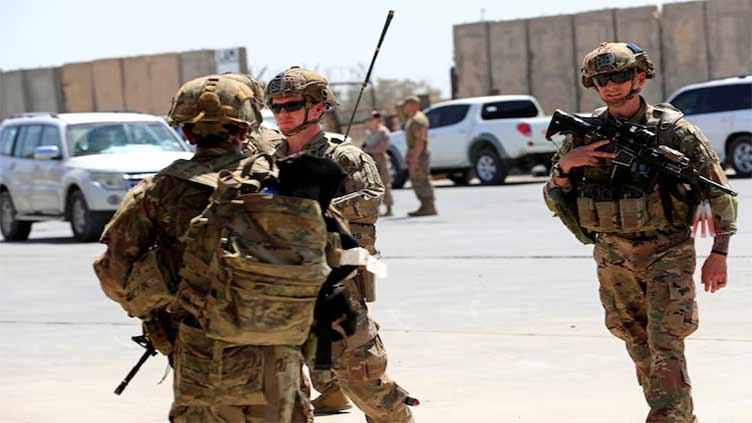Iraq eyes drawdown of US-led forces starting September, sources say

World
US-led forces invaded Iraq in 2003, withdrew in 2011, only to return in 2014 to fight Islamic State
BAGHDAD (Reuters) – Iraq wants troops from a US-led military coalition to begin withdrawing in September and to formally end the coalition's work by September 2025, four Iraqi sources said, with some US forces likely to remain in a newly negotiated advisory capacity.
The Iraqi position is being discussed with US officials in Washington this week at a security summit and there is no formal agreement on ending the coalition or any associated timetable yet, the Iraqi sources and US officials said.
US State Department spokesperson Mathew Miller told a news briefing that both sides were meeting in Washington this week to determine how to transition the US-led coalition's mission based on the threat posed by Islamic State, adding he had no further details.
US-led forces invaded Iraq in 2003, toppled former leader Saddam Hussein and then withdrew in 2011, only to return in 2014 to fight Islamic State at the head of the coalition.
The US currently has around 2,500 troops in Iraq at the head of a more than 80-member coalition that was formed in 2014 to repel Islamic State as it rampaged across Iraq and Syria.
They are housed at three main bases, one in Baghdad, one in western Anbar province and another in the northern Kurdistan region.
It is unclear how many troops would leave under a deal, with Iraqi sources saying they expected most to eventually depart but US officials saying many may remain under a newly negotiated advise and assist mission.
US officials are keen to have some military footprint in Iraq on a bilateral basis, in part to help support its presence across the border in Syria, where it has around 900 troops.
The issue is highly politicized, with mainly Iran-aligned Iraqi political factions looking to show that they are pushing out the country's one-time occupier again, while US officials want to avoid giving Iran and its allies a win.
There are also concerns about Islamic State's ability to regroup.
The jihadist group was declared territorially defeated in Iraq in 2017 and in Syria in 2019 but still carries out attacks in both countries and is on track to double its attacks in Syria this year compared to 2023, the US military said.
The group and its affiliates have also in recent months carried out attacks in Iran and Russia, as well as in Oman last week for the first time.
While the coalition's mission is to advise and assist Iraqi forces in the fight against the Islamic State, Western officials say the US and its allies also see its presence in Iraq as a check on Iranian influence.
Washington and Baghdad initiated talks on the future of the coalition in January amid tit-for-tat attacks between Iran-backed Shi'ite Muslim armed groups and US forces that were sparked by the Israel-Hamas war.
An agreement to draw down the coalition could be a political win for Prime Minister Mohammed Shia al-Sudani, who has been under pressure from Iran-aligned factions to push out US forces but has sought to do so in a way that balances Iraq's delicate position as an ally of both Washington and Tehran.


